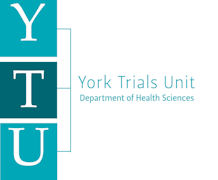Gateway: a randomised controlled trial, economic and qualitative evaluation to examine the effectiveness of an out-of-court community-based Gateway intervention programme aimed at improving health and well-being for young adult offenders; victim satisfaction and reducing recidivism
Youth offenders represent a vulnerable population with a range of complex and overlapping needs, such as mental health issues, substance misuse and accommodation problems. Despite an increase in out-of-court community based interventions (OCBIs) and diversion, the evidence for their impact on the health and well-being of youth offenders is unclear.
This study is a single-site pragmatic randomised control trial, with embedded economic and qualitative evaluations. The aim of the study is to examine the effectiveness of an OCBI called Gateway for improving: health and well-being for youth offenders aged 18-24 in a large City Policing District; victim satisfaction and reducing recidivism. Approximately 334 participants will be randomised for follow up over a two year period for changes in mental health and well-being (primary outcome), as well as quality of life, alcohol and drug use, resource use and recidivism (secondary outcomes).
The Gateway programme is a police-led and funded intervention, within a multi-agency approach. The Gateway model aims to improve health and well-being by engaging young offenders with specialised health and social care services, and in two knowledge/skills workshops designed around understanding offending behaviour, empathy and the wider determinants of reoffending (such as substance abuse and housing problems).
The study will be used to determine health benefits of the intervention, to inform the practice of front-line services within the multi-agency approach; services for users, and the knowledge base of practitioners. The economic evaluation will provide key evidence on cost-effectiveness of the intervention and the potential to make cost-savings and improve public finances. Qualitative work with victims will be undertaken to explore victim satisfaction. An embedded mixed-method process evaluation will examine/explore the experiences of those engaged in the Gateway programme; by understanding the process of implementation, including the barriers/ facilitators of the intervention.
Privacy Notice: How we use your research data
Funding
| Funders | NIHR Public Health Research Programme Grant number PHR - 16/122/20 |
| Start date: | 1st March 2018 |
| End date: | 30th July 2021 |
Members
YTU Team:
- Alison Booth – Trial Manager
- Catherine Hewitt – Co-applicant
- David Torgerson – Co-applicant
External Team:
- Dr Julie Parkes, Associate Professor in Public Health, Department of Primary Care and Population Health, University of Southampton, (Chief Investigator)
- Dr Sara A Morgan, Research Fellow in Public Health, Department of Primary Care and Population Health, University of Southampton
- Dr Inna Walker, Specialty Registrar in Public Health, Department of Primary Care and Population Health, University of Southampton
- Ms Rosanna Orlando, Research Fellow in Health Economics, Faculty of Health Sciences, University of Southampton
- Professor Jenny Fleming, Director of the Institute of Criminal Justice Research, University of Southampton
- Professor James Raftery, Faculty of Medicine, University of Southampton
- Inspector Ben Taylor, Gateway Project Manager, Southampton Central Police Station, Hampshire Constabulary
- Sergeant Caroline Chapman, Gateway Project Support Officer, Southampton Central Police station, Hampshire Constabulary



